TFCA Awards Honour Top Canadian Film and Documentary During Gala Celebration

Award presenter Don McKellar, ‘Blackberry’ co-star Jay Baruchel, Robin Mirsky, the executive director of the Rogers Group of Funds, and ‘Blackberry’ co-star, co-writer and director Matt Johnson with the award for Best Canadian Film – which ‘Blackberry’ won – at the 2024 Toronto Film Critics Association (TFCA) awards last week. Photo: George Pimentel
Movies about Canadian institutions on the ropes won big at the Toronto Film Critics Association gala last week, splitting the $100,000 cash prize from Rogers. Blackberry, the brash rise-and-fall comedy about the telecom giant that revolutionized global communications, was named Best Canadian Film. Meanwhile, the Best Canadian Documentary prize went to Swan Song, a gracefully photographed inside look at the National Ballet of Canada’s recovery from the pandemic, which had put live performances on ice and institutional racism in the spotlight.
This was the first time the top Canadian prize had been split between narrative and documentary categories at the annual awards ceremony, which was hosted by The Handmaid’s Tale star Amanda Brugel. “I’ve been nominated for this twice and both times was robbed brutally,” said Blackberry co-star, co-writer and director Matt Johnson, referring to his previous nominations for 2013’s The Dirties and 2016’s Operation Avalanche. “Both times we lost were to a documentary, and so I think, had this award not been split, I would not be here.”
Johnson’s Blackberry co-star Jay Baruchel, former TV host Rick Mercer, Order of Canada recipient Tantoo Cardinal and Kim’s Convenience star Paul Sun-Hyung Lee were among the recognizable names in attendance at the event, which took place at the King Edward Hotel.

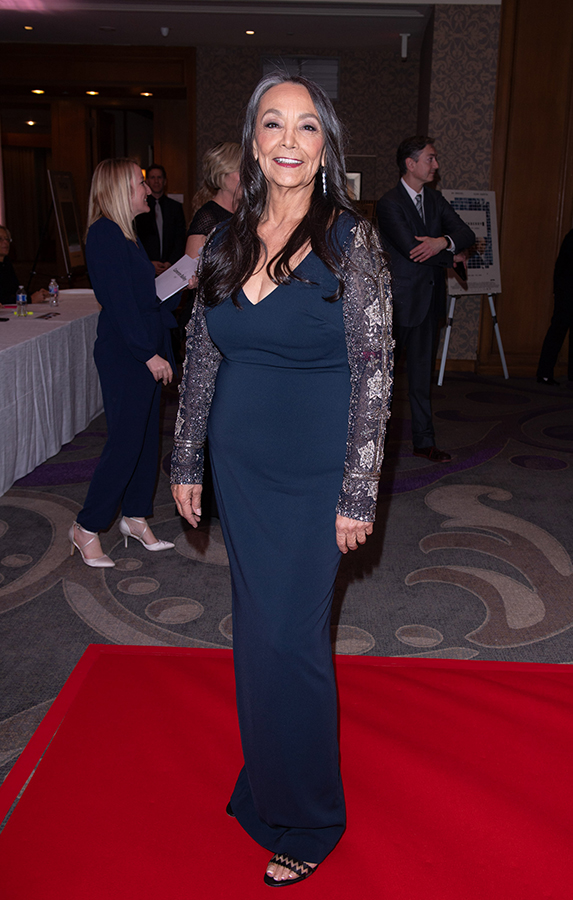
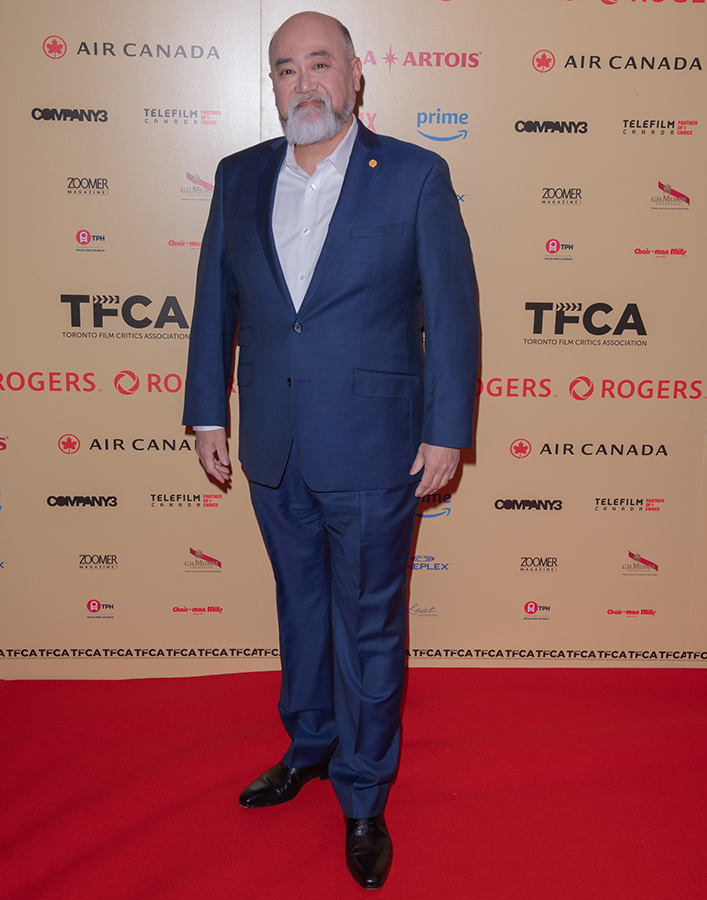
The Toronto Film Critics Association (TFCA) awards, which are voted on by current and former film critics, broadcast personalities and bloggers (including myself along with a number of Zoomer contributors), celebrate both Canadian and international fare. Most winners were announced in December, including the TFCA’s Best Picture prize recipient, Holocaust drama The Zone of Interest.
That film’s producer Jim Wilson was not in attendance at the gala but he sent a video acceptance speech in which he drew the connection between the genocide depicted in his film and the dehumanization and violence currently happening in Gaza. Wilson’s speech at the TFCA awards now feels like a test run for the explosive one The Zone of Interest director Jonathan Glazer gave on Oscar night, where he drew the same parallels and criticized the Israeli occupation. When picking up the Canadian documentary prize at the TFCA awards, Swan Song’s writer and producer Sean O’Neill, standing with director Chelsea McMullan, echoed Wilson’s speech by calling for a ceasefire.
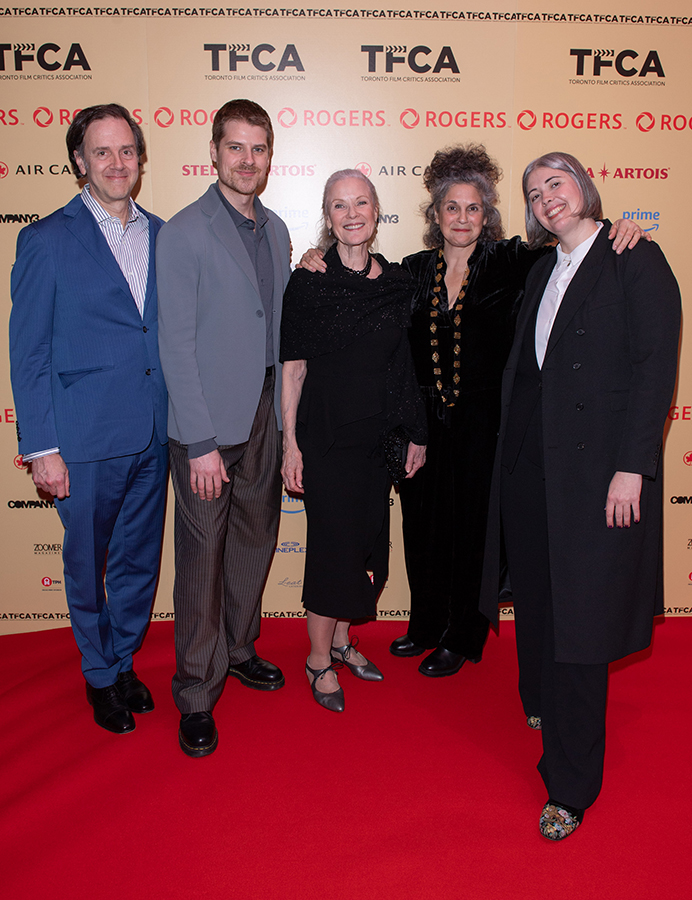
Filmmakers speaking truth to power was a bit of a theme at the TFCA awards this year. Among the Canadian documentaries nominated alongside Swan Song was Someone Lives Here, Zack Russell’s film about Khaleel Seivwright, the man who built “tiny shelters” for the unhoused in Toronto during the COVID-19 pandemic. Clips from the film, which is critical of the costly encampment clearances under John Tory’s leadership, were broadcast during the gala. That must have been awkward for Tory, who just happened to be in attendance.
The other filmmaker nominated in the documentary category was Quebec’s Zayne Akyol, who risked life and limb in a conflict zone for her harrowing film Rojek, in which she interviews ISIS fighters and probes how they become radicalized.

Blackberry’s Best Canadian Film win was a bit of a full circle moment for director Johnson, who has a reputation for being a provocateur speaking truth-to-power – albeit in comparatively more frivolous and entertaining terms. Eight years ago, in conversations with journalists like myself, Johnson had made critical remarks about the insular Canadian film industry. He specifically railed against a public film funding system that dedicated the bulk of its budgets to the same old handful of filmmakers whose best days were behind them, meaning little was left on the table for new voices. He told the Globe and Mail a bunch of people had to die of old age to make room for new filmmakers, which made for a hilariously awkward 2016 TFCA awards gala. “Everybody knows everybody,” Johnson told me at the time. “You don’t want to say something about the guy sitting next to you at dinner.”
Presenter Don McKellar made sure Johnson got to relive that awkwardness at this year’s gala. Before announcing the Best Canadian Film winner, McKellar, among the country’s most caustically hilarious podium storytellers, reprised Johnson’s critical remarks about the Canadian film establish for everyone in the room. McKellar then twisted the knife, pointing out that Johnson is now in league with that very same establishment, which helped him make Blackberry.
During his acceptance speech, Johnson, who is fit to carry McKellar’s comic storytelling crown, pointed out how awkward it would have been had he not won. McKellar gave his whole spiel before even checking the envelope. Said Johnson: “During that speech I was like, ‘This is going to be really humiliating if they give it to one of the Quebecors.’”
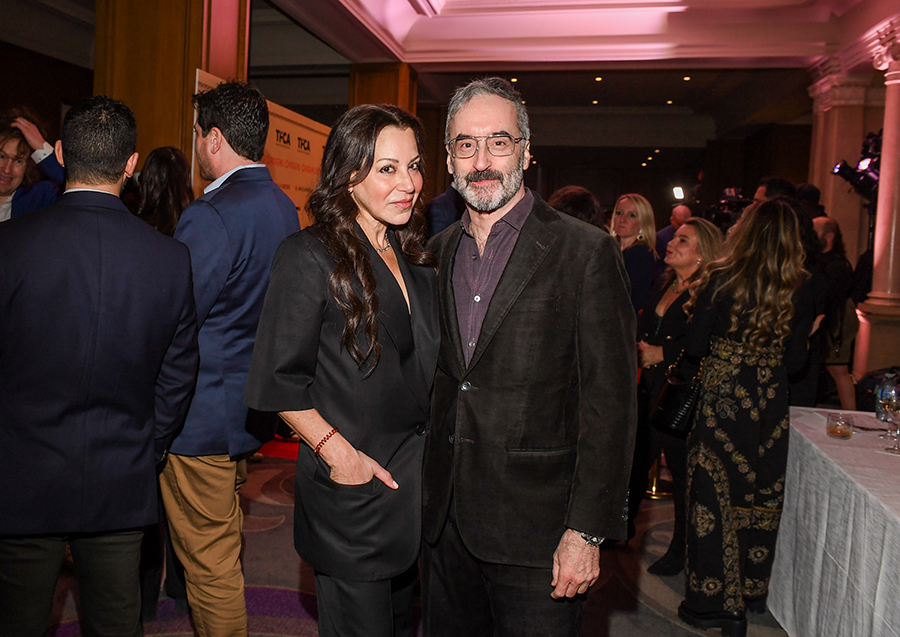
The other Canadian films nominated alongside Blackberry include Sophie Dupuis’s poignant drag queen drama Solo and Ariane Louis-Seize’s lovely and witty debut feature, the dark dramedy Humanist Vampire Seeking Consenting Suicidal Person. Louis-Seize won the TFCA’s Stella Artois Jay Scott Prize, which is awarded to promising new filmmakers. Johnson, a previous recipient of the Jay Scott Prize, looked to Louis-Seize from the podium to say, “I’m telling you your life will become great.”
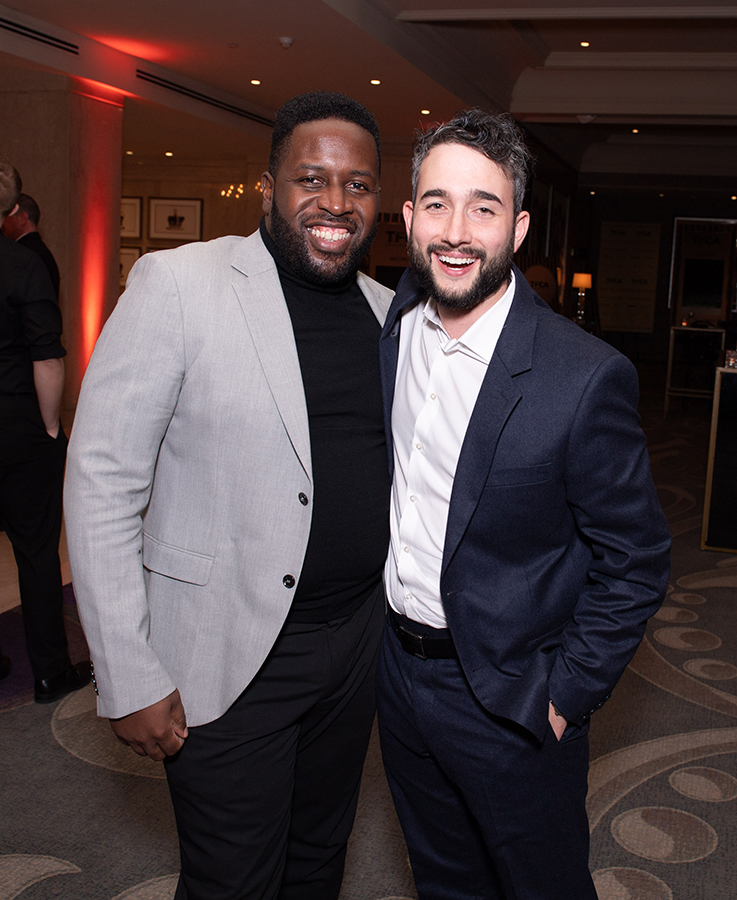
The Toronto Film Critics also hand out a lifetime achievement recognition, the Company 3 Luminary prize given to someone in the Canadian film industry who uplifts and enriches the culture. Past recipients include filmmakers like Alanis Obomsawin and the late Norman Jewison, festival programmers like Steve Gravestock, and even critics like Mark Peransan. This year, the prize was given posthumously to Charles Officer, the director behind Unarmed Verses and The Porter, who tragically passed in December. He was 48.
Officer consistently bumped up against the limits against a Black filmmaker in this industry. Yet he charged forward and still made room to uplift and support others.
The Luminary Award comes with a pay-it-forward element: $50,000 in post-production services for a young filmmaker of the recipient’s choosing. To receive that reward, Officer’s producing partner Jake Yanowski selected a young filmmaker on whom his good friend had his eye – Thyrone Tommy, who made one of Toronto’s sexiest dramas, Learn To Swim.
Stepping to the podium, Tommy paid tribute to Officer, and, like any self-respecting filmmaker, promised to haggle and stretch that $50,000 in post-production services to $75,000.
RELATED:
The 2024 Oscars Celebrate Films Rooted in History, But With an Eye Toward the Present
Dune: Part Two and Lawrence of Arabia: How The Modern Action Franchise Echoes the 1962 Film Classic